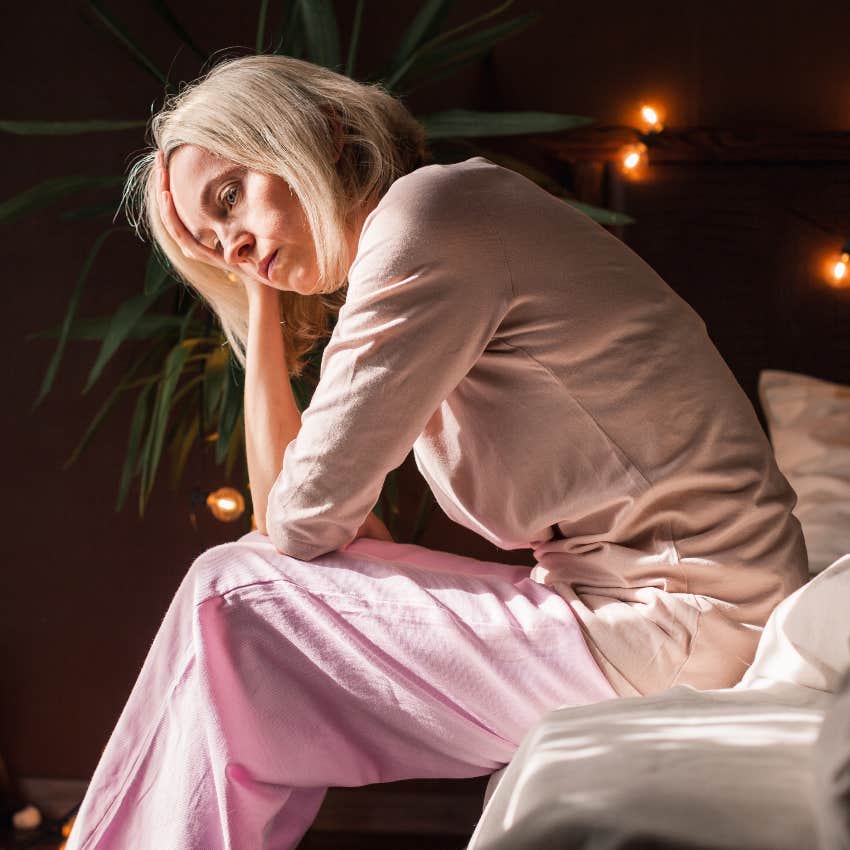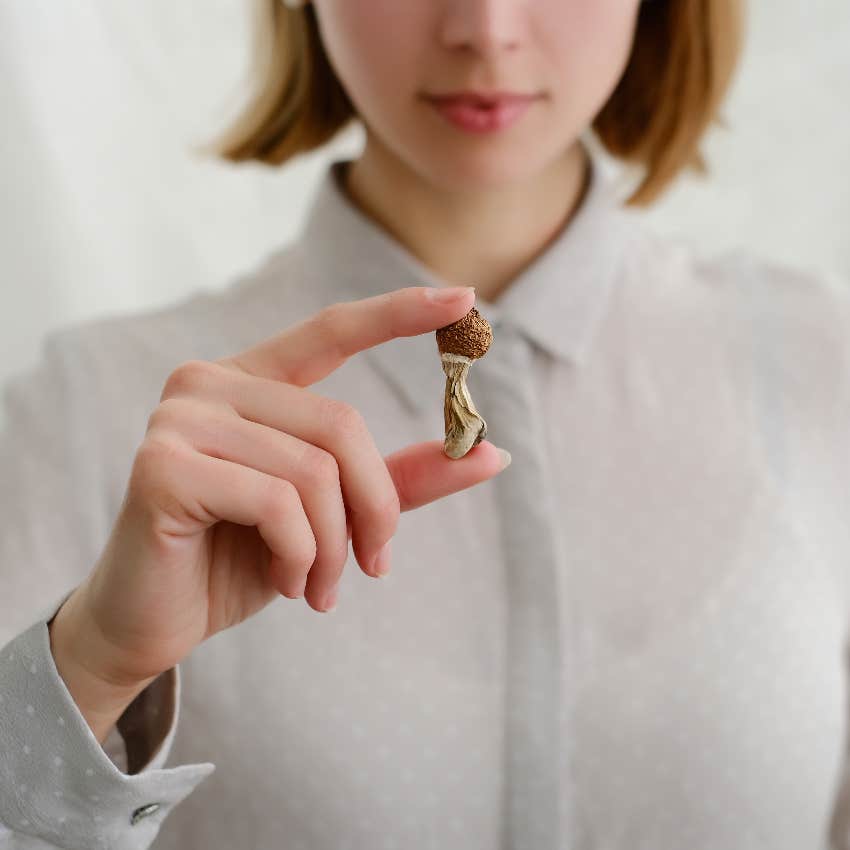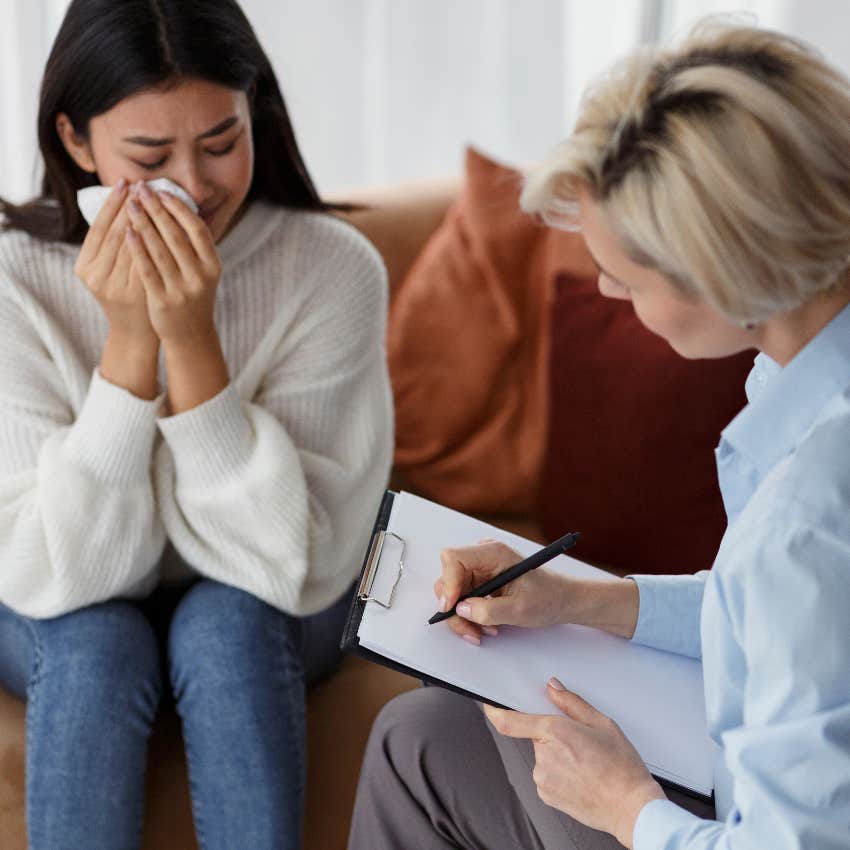On a crisp spring night, my husband of twenty years sat at the kitchen counter with some neighbors, tossing back a few drinks, but I couldn’t join them. I needed to nurse something besides a cocktail.
“Not feeling well, folks,” I said, even though I’d hear plenty about this later. I excused myself and headed to the bedroom.
That afternoon, we’d been out shopping, and I wasn’t walking fast enough (sometimes not slowly enough) for his preference of the moment. He turned and glared at me. “Why are you walking so slowly? I think you do that to make me mad.”
He proceeded to lecture me: my attitude was at fault, I wasn’t concerned with his needs, other women kept pace with their husbands, and it made him look bad. If I truly loved him, I’d keep pace, I was deliberately ignoring his need to get back to his music studio, I didn’t care enough about his music, all I cared about was crazy woo-woo crap, I was nuts, and everyone agreed with him.
I walked faster back to the car, entered, and slammed the door. We drove off. In the privacy of the front seat, I tried to reason with him. He swore at me. “You were talking and made me miss the [expletive] exit!” In the car, he unleashed his full anger.
You’d think he hated me. But no. My abusive husband “loved” me.
So on that evening, I couldn’t laugh and chat. I couldn’t keep the mask in place. Since crying and screaming weren’t an option, I stayed in the bedroom and snuggled in bed with our dog, Macie, watching a movie. From nowhere, a giant lump formed in my throat. What was happening?
 New Africa | Shutterstock
New Africa | Shutterstock
My body was sending me a harsh message: This can’t go on.
I grabbed the bottle of water by my bed and tried to swallow. I could not. That lump wouldn’t budge. This had never happened before. Gasping for air, I wrapped my hands around my neck in a panic and prayed for the sensation to pass.
My mind was racing. Dear God, I must have a tumor in my throat. I must have cancer. Wait, that didn’t quite make sense. This lump was not a thing. It was my muscles constricting so tightly I could barely breathe. I realized I’d held back too many tears, too many screams. They were all now stuck in my throat. That lump was a knot of pure anxiety.
I had contemplated leaving for years, but I loved being married. As a professional matchmaker, I knew how treacherous the waters of singledom could be, and I was grateful not to be out there navigating them.
I cherished our cozy dream house in Los Angeles that we worked as a team to buy a decade prior, complete with my own home office and a swimming pool. I loved our Sunday routine of going out to breakfast and then shopping, back when it was still fun. I loved the security of having someone, having a family.
Many of those Sundays together turned pretty tragic, though. There were many times when we pulled into the garage at the end of the day, and I couldn’t get out of the car fast enough, flipping him off as I hyperventilated and stormed into the house — reactive abuse at its finest.
After two decades of enduring frequent criticism, impassioned lectures, diminishment of my interests, disrespect, and insults lobbed at me like stink bombs; I was finally in total breakdown mode. My nervous system was completely haywire, producing chronic joint pain, breast pain, and brain fog, and I started to stutter when speaking. I’d read that stress can cause chronic illness, even death.
Why was my beloved husband behaving like this? He’d refused to go to counseling. “You’re the one who needs counseling,” he always said.
 Gladskikh Tatiana | Shutterstock
Gladskikh Tatiana | Shutterstock
I needed to figure out why I attracted cruel men — and how to heal that pattern.
I’d spent years searching for answers, ways to make things better. However, this was the third long-term relationship that I was in with this same dynamic. As much as I wanted to blame him, the men… the common denominator was me. I stuck around for it every time.
There was something within me that did not feel worthy. Something allowed me to take the abuse, the verbal and emotional hits.
In my subconscious, I somehow felt this treatment was inevitable, and so I was powerless against it. I had to do something, though.
For over a decade, I’d delved into the spiritual realm. I began with Ouija board sessions. “You brought demons into this house,” hubby said and forbade me to continue. But I kept it up.
I experienced acceptance, excitement, and even magic at New Age Expo workshops with shamans, energy healers, channelers, and yogis. My psychic abilities gradually opened, and I started to communicate with my spirit guides, to astral travel out of my body, to channel angels, and even give energy healings.
 Rido | Shutterstock
Rido | Shutterstock
I was growing and expanding and I loved it but my hubby, not so much. He felt threatened by the fact I was stepping into my power. He felt out of control.
I tried to stay neutral, using my extensive spiritual training to stay grounded, calm, and centered. Just don’t react, I would tell myself. If I didn’t react, there would be no reason for him to continue his tirade.
“Yeah, how’s that workin’ for you?” as Dr. Phil might say.
Non-reaction did smooth over the confrontations at times, but just staying silent was a form of denial, stuffing the hurt, the resentment, and frustration, allowing tension to build up inside where it would eventually squeeze my throat chakra — the energy center that gives us the power to voice authentic emotions. It’s the reason we “choke up” with sorrow.
Maybe I just needed to go deeper. I participated in psychedelic plant medicine journeys.
Psilocybin works through the pineal gland as a portal into other dimensions. Lying on a sofa in a candle-lit room with my shaman, I was a child again.
On another such shamanic journey, I’m eleven again. As a pale redhead, I, along with my best friend — also pale, am continually harassed, kicked, and hit. Running at top speed, I dodge thrown rocks and darts aimed at my ankles. Four mean girls assault us, one pulling a clump of hair out by the roots, leaving a bloody bald place the size of a nickel in my scalp.
A counselor meets with the six of us, and the little bullies are as nice as lollipops, but back in the real world, the war continues. There is nothing I can do.
Message received: counselors and people I look to for help are as powerless as I am.
Flash forward to me in my late twenties. Total strangers make it their business to tell me I need to get a tan. I’m a beautiful and shapely young woman, married to a French chef who cheats on me, insults me, and tells me if I don’t go to a tanning salon, get breast implants, and bleach my hair blonde, he will divorce me.
Message received: I’m not lovable as I am; if I want love, I must jump through hoops and endure. It’s just the way it is.
Through the psychedelic journeys, I experienced profound insight and support from my ancestors. I screamed and cried, releasing the pain and karma from past lives, childhood trauma, and the relationships in this life.
Research has found that psychedelics are powerful healing agents as they “create a remarkable space in which to discover all the components of self.” They help users to “process trauma blocks” and reconnect with “disavowed aspects of the self.”
When the lump in my throat finally subsided that spring night two years ago, I got up off the bed and opened the blinds. The moon was in the waning gibbous phase. In astrology, this moon phase represents a warning sign about a habit or lifestyle that may be toxic. It’s a time to prepare for transformation, a moment of reflection and self-discovery. I couldn’t believe what I was about to do.
 Cannabis_Pic | Shutterstock
Cannabis_Pic | Shutterstock
My instincts told me that it was time to leave my marriage.
My body seemed to be moving completely independently, disconnected from my brain completely, as I went to the closet and took down two small suitcases, which I quickly filled with clothing and then stashed in the back of the closet before the party in the kitchen ended.
The next day, my husband gave me a warm hug and a kiss before leaving for lunch with a friend. I felt a pang of sadness and guilt as I bid him farewell and wished him a great day. I watched his car turn out of the neighborhood, then quickly left a note on the kitchen counter apologizing for the way I was doing this.
I loaded my salsa red Toyota Scion with the suitcases, bedding, water, snacks, and Macie. I drove 1,000 miles north to my mother’s house. I was numb, and I thought about turning around and going home at least a dozen times, but I knew that I was saving myself. I was saving my life.
My husband was, of course, stunned when he found out I’d left. When I arrived in Ashland, Oregon, we connected on a video chat. “You’re breaking my heart,” he said, tears streaming down his cheeks.
Deep down, I knew he loved Macie and me, and I still loved him, but I couldn’t stick around as a verbal punching bag any longer. I would have to love him from afar, at least for a while.
I texted him daily to make sure that he was OK. Sometimes we could chat on video and get along, but mostly I endured his criticisms. He finally told me just to come back and pack the rest of my things and get out for good. So, I did. I stayed in the house with him for ten days, tying up loose ends, knowing the end was near. He helped me pack my boxes while I choked back the tears.
I couldn’t take any more pain and spent the last days in a hotel. The most heartbreaking scene was when Macie and I were ready to go, and my husband said, “Hang on. Let me say a proper goodbye to Macie.” He sat down and put her on his lap. He openly cried as he stroked her. “Goodbye, Macie.” I cried the whole long drive.
 Prostock-studio | Shutterstock
Prostock-studio | Shutterstock
I began creating space for a new life.
I settled into the back of my mother’s house near Seattle and created an “apartment” facing a park filled with hundred-year-old fir trees. I tore out the old carpet, stinky after twenty-five years of my mother smoking (yuk), installed rustic-looking laminate floors, and even created an “Ouija corner” to display my vintage talking board that my hubby had banned in our home.
I made my new space magical.
In the first months, however, I was so distraught and depressed I often stayed in bed for days on end, my phone, laptop, tarot cards, and hot tea next to me. Thankfully, I could work from home. I often sobbed into my Macie’s fluffy, black fur.
Once a week, I talked to a therapist and a divorce coach, and I also received energy healing from a distance. The tears fell like the Seattle rain.
Determined to adjust, I took myself out to lunch, bought some new clothes, and joined a group on a spiritual retreat at Mount Shasta. The months passed, and it felt good to be free of constant arguing and criticism.
As I wandered through the aisles at a mall or the big box stores that my husband and I used to go to together on Sundays, sights and smells would trigger a new torrent of tears, however. I wished he had loved me enough to show up at the door with flowers, apologize sincerely and profusely, realize he couldn’t live without me, and take me home. When I’d get back in my car, I’d smash my hands on the steering wheel and scream and scream.
Tears seemed always to be right on the surface, ready to flow. After a year of this misery, I knew I had to make another change. I decided to trust my body to tell me what it needed. One day I asked myself, “What do you need, Marla? What?”
Somehow, a voice in my head replied, “Hot yoga.” I had never done hot yoga. I hated the heat, hated the thought of sustained contortions in a heated room, usually between 105 and 115 degrees, but I Googled hot yoga studios in the area and signed up the next day.
Five days a week, I showed up on the mat in the back of the room and quietly sobbed through most of the hour. At the end of class, the teacher would check in with me to see if I was OK. “I’m getting a divorce,” I sobbed. I could not get used to saying those words.
Many times, I thought about canceling my membership. It was just too hard. But I stuck with it; I kept showing up. After each class, I felt cleansed. I felt stronger. I was releasing decades of trauma. Toxins were expelled from my organs.
I found the answer in my tears. Painful words and put-downs oozed out of my pores and onto the towel and mat. I had needed to cry for a year. My tears are what healed me.
Research shows that crying is a self-soothing behavior. It helps to bring you back to a baseline emotional state and it helped me realize I was worth healing.
I was proud of myself. I was pretty badass. I slowly started to love and respect myself truly, and eventually, the crying stopped.
Somehow the healing has brought about the ability to connect with my former husband without getting triggered. I love being stronger, grounded, sure of myself, centered, with strong boundaries, and feeling happy, so happy.
I am worth healing. I am worth loving. I am love.
If you think you may be experiencing depression or anxiety as a result of ongoing emotional abuse, you are not alone. Domestic abuse can happen to anyone and is not a reflection of who you are or anything you’ve done wrong. If you feel as though you may be in danger, there is support available 24/7/365 through the National Domestic Violence Hotline by calling 1-800-799-7233. If you’re unable to speak safely, text LOVEIS to 1-866-331-9474.
Marla Materson is an award-winning author, spiritual life coach, matchmaker, energy healer, and intuitive reader.

